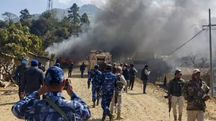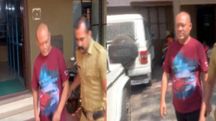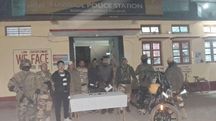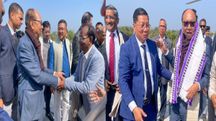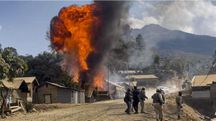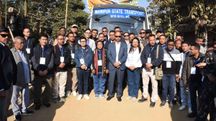Kuki rights body challenges NFSU forensic report on Biren Singh audio, seeks court-monitored SIT
The Kuki Organisation for Human Right Trust on November 19 filed a detailed counter-affidavit before the Supreme Court, challenging the findings of the National Forensic Science University (NFSU), Gandhinagar, on the leaked audio tape allegedly featuring former Manipur Chief Minister N. Biren Singh.
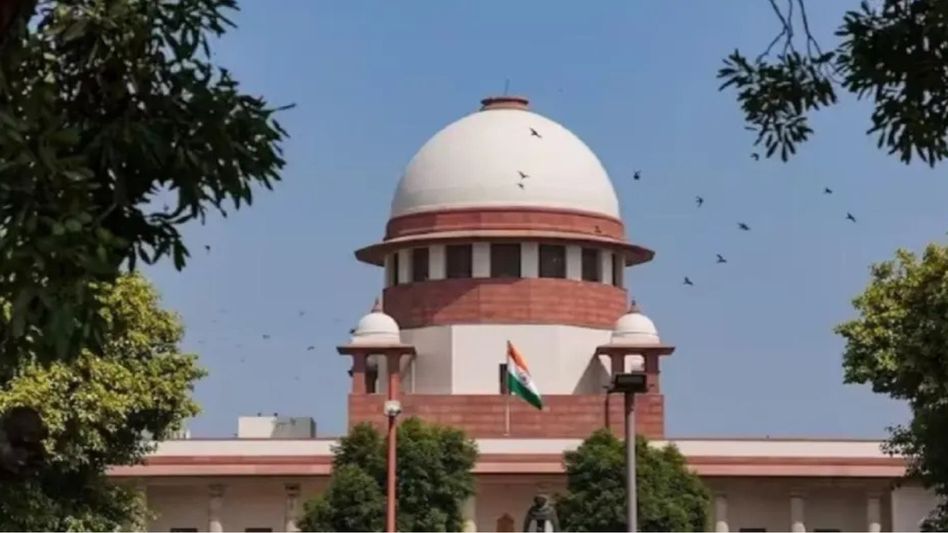
The Kuki Organization for Human Right Trust on November 19 filed a detailed counter-affidavit before the Supreme Court, challenging the findings of the National Forensic Science University (NFSU), Gandhinagar, on the leaked audio tape allegedly featuring former Manipur Chief Minister N. Biren Singh.
The filing, made in connection with Writ Petition (Civil) No. 702 of 2024, strongly disputes the forensic report submitted by NFSU on October 10, 2025, and accuses the authorities of forwarding incomplete and misleading material for examination.
In the affidavit, petitioner chairman Houlim Shokhapao Mate stated that the original 48-minute audio recording—central to allegations of high-level complicity in the 2023 ethnic violence between Meitei and Kuki-Zo communities—was never sent to the Gandhinagar laboratory. Instead, only four short clips ranging from 30 seconds to under two minutes were provided by the Manipur Police’s Cyber Crime Unit, preventing any meaningful analysis of continuity, authenticity or context. The petitioner said it was “shocking” to discover that the complete recording, already filed before the Court in January 2025, had not been forwarded for forensic scrutiny.
The affidavit contrasts the NFSU report with a January 2025 analysis by Truth Labs, an independent forensic laboratory founded under the patronage of former Chief Justice of India M. N. Venkatachaliah. Truth Labs examined the full recording and concluded with 93 percent probability that the voice matched Biren Singh’s admitted voice samples. In its report, NFSU declared the clips “tampered” and even rejected admitted voice samples sourced from Doordarshan as “processed,” thereby refusing to conduct a voice-matching exercise.
The petitioner told the Court that the selective transmission of incomplete audio clips raised “serious concerns regarding the bona fides” of the State’s conduct and said multiple corrections in the process had to be made only under the directions of the Court. It further noted that the individuals who recorded the audio had already submitted the full tape—over an hour long—to the Justice Lamba Commission of Inquiry along with an affidavit attesting to its authenticity, but no action had been taken so far.
The affidavit reiterated the prayer for a court-monitored Special Investigation Team, arguing that the existence of prima facie evidence pointing to the possible involvement of the highest levels of the Manipur administration made an independent probe essential. It added that the Supreme Court should not engage directly in technical determinations on tampering, which fall within the domain of a competent investigative body.
The matter is expected to be taken up in the coming hearings, where the Supreme Court will examine the contradictory forensic reports and the petitioner’s claim that critical evidence was withheld from forensic authorities.
Copyright©2026 Living Media India Limited. For reprint rights: Syndications Today
